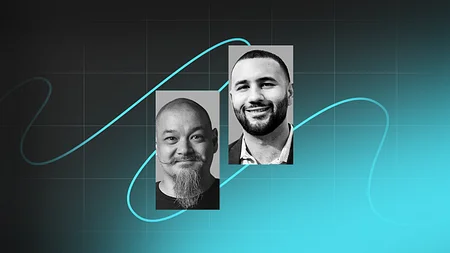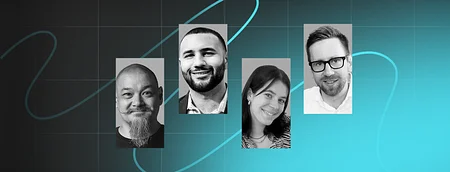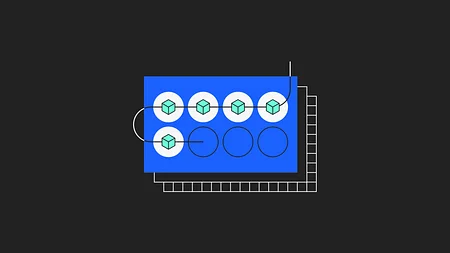How to get a job in Blockchain
Blockchain is a growing space that everyone wants to get into, and not just companies, potential employees too.
So how do you get a job in blockchain?
Simon Taylor interviewed specialist recruiter for the blockchain and cryptocurrency space, Zeth Couceiro for Blockchain Insider Episode 6.
Can you tell us a little bit about who you are and what you do?
My name’s Zeth Couceiro, I am the Co-Founder of Plexus Resource Solutions, we are a specialist recruiter, or talent partner, in the blockchain, DLT and cryptocurrency space.
I’ve been asked the question quite a few times, “How do I get a job in blockchain?” I’m sure you probably get that question a lot. What type of companies are hiring?
So, years ago, when I first started, it was predominantly financial services companies, and so it was consultancies linked with those guys. Recently, it’s been an explosion of, automotive utilities, defence, supply chain, and not just startups. Corporates are getting on this; big, big consultancy firms, too.
What are you seeing those companies asking for? What sort of skills should people be looking for?
Generally speaking, they’re looking for developers. So, basically, you get three types of developers, I’m finding. Core developers: the guys who would have built the actual Bitcoin protocol, or the Ethereum protocol. Then you get your back-end developers, who build on top of it, like the emergence of solidity, for smart contracts. Then, lastly, you get your front end devs, which are like React, front end guys, they’re less common, but they’re becoming more common now.
You’ve got to have something that touches the user at some point. You’ve got to have things somebody can use, not just code.
Yes, exactly, and you’re also seeing a lot more dev ops guys coming into the space, as well, just in terms of continuous integration, in some of the work they’re doing. So that’s coming up a lot more in the last, six months, I’ve found.
So, what percentage would you say is technical development experience?
I’d say 70, 80% of them are developer-based. I had some more stuff around, digital marketing, particularly pushing ICOs. You’re also getting some stuff around subject matter experts, or PMs, but mostly it’s developers. 80% plus.
Wow. That’s interesting. So, if you are a developer, but you’ve not been in the blockchain or DLT space before, what sort of skill set and background do you need?
It’s tough. Generally speaking, you want somebody who’s maybe worked with multiple languages, and maybe big data sets. Distributed systems, or maybe polyglot engineers is probably what you’d call them. Each of these platforms is built on different languages, and so someone who understands multiple languages is better equipped to handle the complexity of working in blockchain.
So, I guess this is the challenge, right? We’re still seeing a market that’s pretty complex, and you’re looking for diamonds, really, because there aren’t many of these polyglots.
No, there are not. There’s a lot more guys coming through, or the newer platforms are looking for a lot of functional programmers, which is an emerging trend across the whole of the dev space.
What’s a functional programmer?
In a traditional sense, a functional programmer is someone with [proficiency in] Haskell or Scala, or Lisp.
So these newer languages?
Yes. Well, some of them are quite old, but they were traditionally academic languages, but then they’ve moved now into the mainstream. They’re generally better in terms of handling a lot of data, hence why they work quite well with blockchains.
Interesting. So, what trends are you seeing from the growth perspective? There are a couple of industries there, but if you had a candidate saying, “Right, where do I take my career now? I’ve got a little bit of dev skill, I’ve worked in project management here and there, I’ve been a BA here and there,” what advice are you giving out?
There are three main platforms currently, and these guys are generally leading most of the corporate blockchain innovation. That’s the stuff that R3 are doing with Corda, it’s the stuff that the Linux Foundation are doing, and IBM, as well, with Hyperledger and the Ethereum Alliance.
Generally speaking, most of the big core projects are that, but I’m starting to even hear about people already looking to integrate stuff like Iota, which is incredibly new still, but people are still looking at some of the newer things that are only just, sort of, starting to come through. But in terms of what to expect, and how to maybe get into that space, there’s no shortage of these projects, or programs that are looking for some form of developers to help build their open source projects, and so what I would recommend is, start looking up online, start finding out which projects maybe fit your tech stack, or skills.
[For example] if you come from, I don’t know, a java background, maybe R3 might be good for you, or Corda, because that’s a Kotlin, which is a JVM type technology stack, that might suit you better. So, start looking at your technology stack, start looking at which organizations or platforms are using those, and then just get onto GitHub, and just start looking at what these guys are doing. Download the software, start messing around with it.
Have a play.
Yes, exactly. Exactly.
There are some really great Hello Worlds out there, and a lot of developer support and evangelism. If you get to their websites, there’s a lot out there if you just do a cursory bit of Googling.
What about the companies looking to bring the staff in? What advice are you giving to them, and what should they be looking for?
Everybody wants the best developers, and everyone wants to pay as little as they can get away with, and they need them straight away. So, I would always try and go through a bit of an exercise with them, in terms of, just try and evaluate what it is you’re looking for.
Do you need someone who does core blockchain? Or are you just building, Ethereum smart contracts on top of what you’re doing? Or evaluating what you’re looking for. Once you’ve got that idea, then try and prioritise in terms of time, quality or cost. Do you need them straight away, or can you wait?
Quality, do you need them to have specific blockchain experience? Or are you comfortable up-skilling them with blockchain later on? Or maybe have someone in the team who can help up-skill them. Or cost. Are you willing to pay over the market to get the best guys? Or are you on a budget in terms of limiting what you’re looking for?
So that’s a really interesting point. What do you want to be good at as an organization should inform how you hire, as a business, you have to know what you want. How do you get towards that, do you think?
A lot of consultancies are just looking at, “Right, well, I’ve got clients here, how can I start not looking like I’m way behind the curve on this?” so then they think generally, “Right, I’ll get in a really, really, hot architect,” and generally, they’ll need the best of the best, because they’ll be speaking to, guys who are well established in the space. If you’re a startup, chances are you probably have a CTO that already understands this market, and so I would normally say to them, do they actually specifically need blockchain experience? If you’re looking at bringing guys in with blockchain experience, you’re going to be paying a premium for that, and you might not even need to. A lot of these guys could up-skill quite quickly on this stuff.
I think it’s fair to say that the first blockchain employee was probably Satoshi Nakamoto in 2008. There is probably nobody on the planet, with ten years of blockchain experience. So we’ve all had to learn this pretty quickly, and good skills are reusable, right? I think it’s sage advice.
Anyone looking to get into this space, how can they find out more about what you do?
In terms of getting into the space, there is no shortage of meet-ups, wherever you are. So, I’d encourage people to go to meet-ups and speak to other developers, other guys in the space. I’d also say just get onto these GitHubs, and just check out what people are doing in it. What are people uploading? What matches their tech stack?
In terms of getting in touch with us visit Plexusrs.com, or on Twitter, @zeth_plexus.
Thank you very much for being on the show, Zeth
For more information listen to the episode in full, or subscribe to Blockchain Insider on iTunes or your favourite podcast provider, to keep up to date on all the latest news, stories and special guests in the blockchain and cryptocurrency space.




